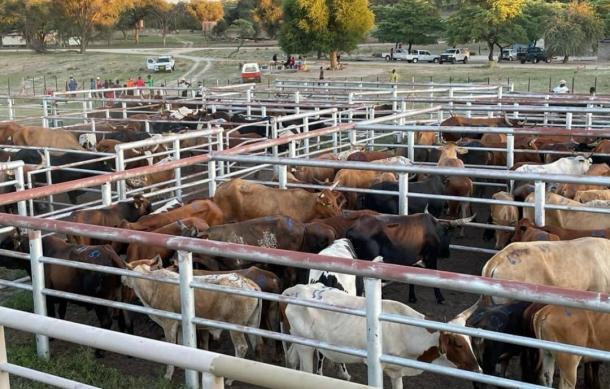
Young Namibians are changing the status quo by embracing the selling off of some of their livestock to earn a living, as opposed to the traditional way of keeping them.
Livestock farming does not only contribute to food security and livelihoods, but it is also a means of income generation.
Many, especially young people, are seeing livestock farming as a profitable business, while in the past, some elderly men kept them for status.
28-year-old Angula Gideon has looked after livestock since his childhood, which encouraged him to start farming after completing secondary school.
He started farming in 2017 because he did not want to sit idle at home.
Gideon says gone are the days when people could only keep cattle for slaughter at weddings and other gatherings.
"At least we must reduce our livestock, the oldest ones, because when it comes to drought times, sometimes it is not good; you might lose a lot. It's good; it's better than losing. Like you must save, and next time buy the new ones. Even when it comes to feeding, there is a big difference between feeding young ones and big ones; there is a big difference, you know. What I am advising our parents is just to sell those old livestock to buy new ones, even if their meat does not have quality."
Gideon says there is money in livestock farming, as every day when he takes his goats to the market, he does not return home empty-handed.
The majority of their customers are kapana sellers and upcoming farmers who usually purchase young goats for breeding purposes, and this gives them the courage as farmers to also vaccinate their livestock to keep them healthy.





